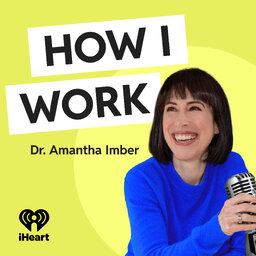Quick Win: Quick Actions for Long-Term Gains with Adam Alter
Unlock the secret to skyrocketing your productivity with a simple, yet powerful approach to managing your daily tasks. In this Quick Win episode, Professor Adam Alter, New York Times bestselling author of Anatomy of a Breakthrough and master of efficiency, reveals his top strategy for preventing small tasks from derailing your big goals. Learn how to transform your workflow, clear your mental clutter, and make room for what truly matters.
My new book The Health Habit is out now. Order your copy here.
Connect with me on LinkedIn and Instagram.
Sign up for my weekly newsletter for more life-improving tips at howiwork.co.
Got questions or feedback? Email me at amantha@inventium.com.au.
Credits:
Host: Amantha Imber
Sound Engineer: Martin Imber
 How I Work
How I Work


